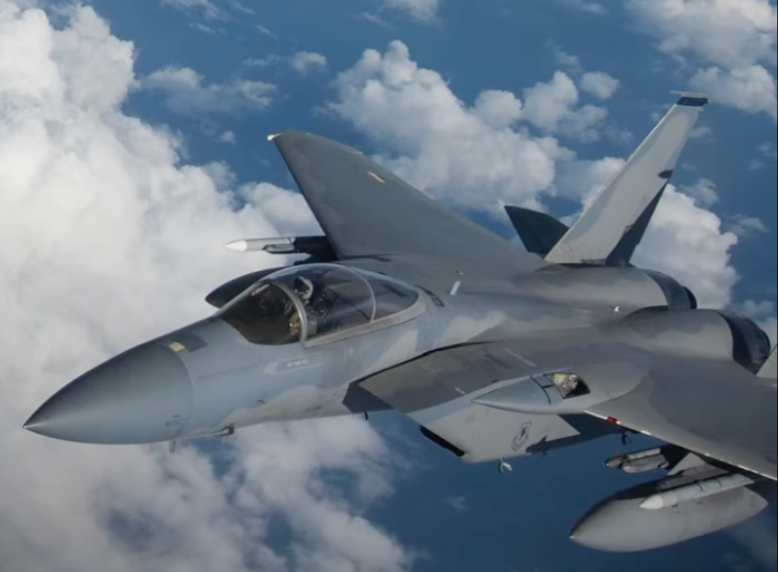Breaking News
US OKs $20 Billion Israel Weapon Sales, Affirms Commitment to Regional Security

Source: YouTube
The recent approval of a $20 billion Israel weapon sales package from the U.S. has sparked considerable debate among policymakers and analysts. This massive deal, which includes advanced weaponry and technology, underscores the deep military alliance between the two nations. While the primary goal is to strengthen Israel's defense capabilities, the broader implications of these Israel weapon sales cannot be overlooked.
A New Balance of Power?
The Middle East is a region marked by volatility, with numerous conflicts and rivalries shaping its geopolitical landscape. The U.S. decision to enhance Israel's military strength with a $20 billion Israel weapon sales deal sends a strong message to both allies and adversaries. On one hand, it reinforces the U.S.’s commitment to Israel’s security, a cornerstone of its Middle East policy for decades. On the other hand, it could provoke further tensions in an already unstable region, potentially leading to an arms race as other nations seek to counterbalance Israel's enhanced capabilities.
Recent Escalations and the Need for Enhanced Defense
In the past few weeks, the situation in Israel has become increasingly tense. Hezbollah, the Iran-backed militant group, has launched drones laden with explosives from Lebanon into northern Israel. These attacks have prompted significant military responses from the IDF, including airstrikes on Hezbollah positions in southern Lebanon. The escalation in violence highlights the urgent need for Israel to bolster its defenses, particularly its missile defense systems and air force capabilities, which these Israel weapon sales aim to enhance.
The $20 billion package will fund critical upgrades to Israel's Iron Dome system, new F-35 fighter jets, and advanced cyber defense measures. These enhancements are essential for maintaining Israel's qualitative military edge, a key component of U.S. policy in the region. However, the Jewish nation shouldn’t expect overnight delivery for many of the weapons. The $20 billion arms package includes a phased delivery schedule, with some advanced weapon systems, such as missile defense upgrades and new F-35 fighter jets, expected to be delivered over the next several years. The initial shipments could begin as early as the end of 2024, with full delivery potentially extending into the late 2020s, depending on production schedules and Israel's specific defense needs. The timeline reflects the complex logistics involved in transferring and integrating these high-tech systems into Israel's military infrastructure.
Critics Raise Concerns…
Critics of the Israel weapon sales package argue that flooding the region with more advanced weaponry could exacerbate existing conflicts. They fear that Israel, emboldened by its newfound military prowess, might adopt a more aggressive stance in its dealings with neighboring countries. This could undermine diplomatic efforts aimed at fostering peace and stability in the region. Moreover, the $20 billion Israel weapon sales deal could have long-term implications for U.S. foreign policy. While the U.S. has always been a key ally of Israel, the decision to provide such a substantial arms package could strain relationships with other Middle Eastern nations. Countries that view Israel as a rival may see this move as a direct threat, leading to further polarization in the region.
…While Supporters Stand Firm
However, supporters of the Israel weapon sales package argue that it is a necessary measure in the face of increasing threats. Israel is surrounded by nations and non-state actors that are often hostile to its existence. In such an environment, the ability to defend itself with cutting-edge technology is crucial. The U.S., by supplying these arms, is not only protecting Israel but also ensuring the stability of an important ally in a volatile region.
Strategic Security Move, or More Fuel to the Fire?
As this situation unfolds, the key question remains: Will this $20 billion Israel weapon sales package bring stability or further destabilize the region? The answer may depend on how Israel and its neighbors choose to respond in the coming months. The U.S. must carefully navigate this complex geopolitical landscape, balancing its support for Israel with the need to maintain broader regional stability.
Do you support the latest Israel weapon sales worth $20 billion? Will it bring a quicker resolution to the Middle East conflict or will it add more fuel to the fire?
